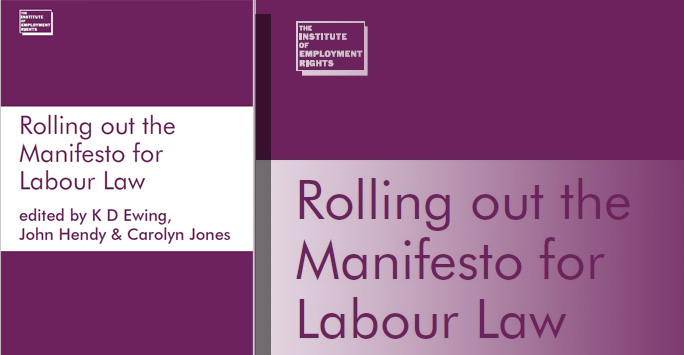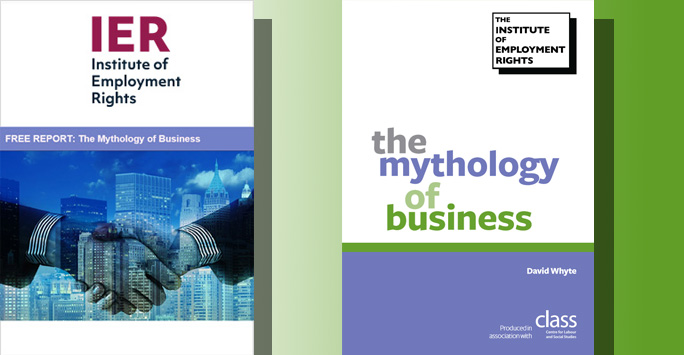Reshaping labour and trade union policy on workplace safety regulation
Professor David Whyte’s research on reshaping policy in workplace safety regulation has been used by trade union and Labour Party policy at the highest levels. It has provided the foundations for the implementation of a series of concrete policy proposals that include: proposals for a rejuvenated system of health and safety enforcement; new administrative mechanisms; and legal reforms that adapt to the changing world of work.
The challenge
Too many workers and their families suffer from the failure of their employing organisations to provide safe and healthy working conditions. Injuries, acute and chronic ill-health and death occur all too frequently, also generating emotional and financial costs. Yet employing organisations are rarely held accountable for these outcomes. In fact, most of the associated costs are borne by those harmed and their families, and the taxpayer through the costs of paying benefits and providing health care. Those problems are exacerbated by the changing world of work. While the self-employed constitute around 15 percent of employment, they account for 30 percent of workplace fatalities.
There are major challenged for policy makers seeking to protect workers and members of the public in a period of unprecedented public sector cuts. Regulator authorities such as the Health and Safety Executive have seen their budgets fall by 40-48%. The number of safety inspectors on the front-line has fallen just as rapidly. The challenge, then is a political one: how do we build an evidence base that shows the long term damage to public safety that austerity is causing, and how do we use that evidence base to reverse the situation.
Research action
David Whyte’s research has involved a long-term analysis of a large data set that demonstrated how government policy has profoundly damaged workplace health and safety regulation. This finding detailed the impact of under-funding, under-enforcement policy and the “better regulation” regime between 1997 and 2010.
Subsequent policy analysis of the impact of the 2010 Coalition government policy established that the impact of austerity and a series of aggressive pro-business policies likely to significantly exacerbate risks in workplaces. Part of this research project involves the development of a detailed historical analysis of the UK’s failure to implement ILO compliant inspection and enforcement regimes; and a more general failure in UK government compliance with ILO health and safety standards. This research finding is based on a unique ‘benchmarking analysis’ of the UK’s compliance with ILO standards.
Working in partnerships
David Whyte’s research on the impact of austerity policies generally, and the reshaping policy in workplace safety regulation specifically, has been cited and used by trade unions and the Labour Party at the highest levels.
It has provided the foundations for the implementation of a series of concrete policy proposals that include: proposals for a rejuvenated system of health and safety enforcement; new administrative mechanisms; and legal reforms that adapt to the changing world of work.
This work has been developed in close collaboration with the Institute of Employment Rights (IER). Whyte’s underpinning research informs the policy proposals in the IER Manifesto for Labour Law project has had an impact on the development of policy in the UK Labour Party and trade union movement.
Outputs and outcomes
The Manifesto for Labour Law
We have worked closely with the Institute of Employment Rights, and welcome this new report that offers a practical plan to protect and improve upon, workers' rights and ensure that the economy works for the many and not the few.
—Rebecca Long-Bailey MP, Shadow Secretary of State for Business
The I.E.R.’s Manifesto for Labour Law helps point the way forward to a brighter future
—Francis O’Grady, General Secretary, TUC
The Violence of Austerity
Watch a short video: (9 minutes, 26 seconds)
Vickie Cooper and David Whyte, 'The Violence of Austerity' (Pluto, 2017).
Power to the professors enriching the vocabulary of our times. ‘The Violence of Austerity’ is essential reading.
—Lowkey, rapper
The Violence of Austerity is a vital reminder to tell the tragedy of modern Britain like it is.
—Alice Nutter, screenwriter and former singer, Chumbawumba.

'Rolling out the Manifesto for Labour Law', edited by K D Ewing, John Hendy & Carolyn Jones. Published by The Institute of Employment Rights.
Related publication

With party political general election campaigns now underway, there have been a lot of assertions made in the press about the way in which different policies will affect business and the economy.
Some of these appear to have been based on what Professor David Whyte of the University of Liverpool calls "zombie myths" - concepts that have been repeated so often they have become 'common knowledge', but for which there is actually no evidence.
In his IER report The Mythology of Business, Professor Whyte deconstructs ten such myths and informs readers of the statistical evidence that disproves them.

An analytical masterpiece, describing what has happened to our communities as a result of austerity.